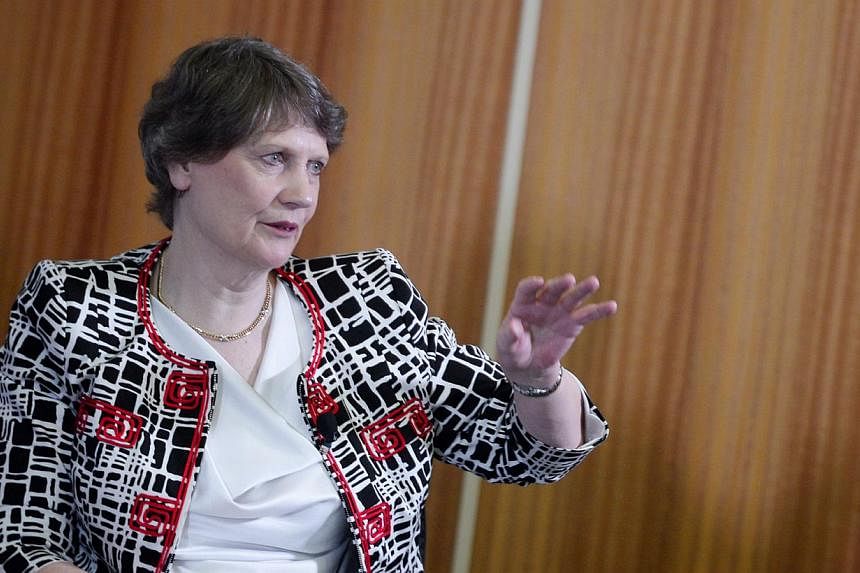Leadership skills seem to have come naturally for former New Zealand prime minister Helen Clark, currently the top female executive at the United Nations as its UN Development Programme (UNDP) administrator.
Ms Clark, now 64, is also tipped as a potential candidate for the UN's top job when secretary-general Ban Ki Moon's term expires in 2016. No woman has ever filled that post.
But Ms Clark is not new to making history. Born the eldest of four sisters, she was the first woman in New Zealand to lead a political party to electoral victory in 1999, and was the country's Prime Minister from 1999 to 2008.
Ms Clark was in Singapore earlier this month for the World Cities Summit and the CleanEnviro Summit Singapore.
During her trip here, she also gave a lecture on "Women, Excellence and Public Service" at UNDP's Global Centre for Public Service Excellence.
Women leaders were invited to speak at the lecture, including Ang Mo Kio GRC Member of Parliament Dr Intan Azura Mokhtar, who said that about 24 per cent of MPs in Singapore are women.
The figure is below the UN Millennium Development Goal that countries should have at least 30 per cent female representation in parliaments by 2015.
Ms Clark also noted that a survey by the Diversity Task Force found that only 8.3 per cent of listed company directorships in Singapore were held by women.
In an interview with The Straits Times, Ms Clark offered some words of wisdom on a wide variety of topics, from how to improve gender equality in politics to tips on being a good leader.
Tip 1: Persuade political parties to recruit more women
"We've begun to focus on the political parties because they're the people who select the people to run.... So we've put a lot of emphasis on the parties and we also say, if nothing else works, a country should have special measures like targets or quotas because that will boost numbers quickly.
"And then over time, maybe special measures can be dropped because women become acceptable, people just get used to them being members of parliament in significant numbers."
Tip 2: Singapore needs to improve on gender equality
"I had some figures where the survey that was commissioned by the Speaker (of Parliament Halimah Yacob) showed a pretty low number of women on company boards, so that's an area of attention... Singapore is not meeting the Millennium Development Goal on women's participation in legislatures...
"The Government party here is a well-organised, long-term party, it's certainly got it within its power to make that difference towards representation."
Tip 3: To be a good leader, build up a high level of belief and self-esteem
"You have to believe in yourself. If you don't believe in yourself, nobody will.
I'm not saying that people should foolishly believe in themselves, there's no point believing that you really can do something when in your heart you know that you don't have the qualifications, so some insight is required, along with self-belief.
But if you really believe that you can do a job as good as anybody else and you put in the hard yards and you've got the qualifications, then why shouldn't you do it well? So you need sort of have that informed self-belief, based on a track record of achievements."
Tip 4: Leaders should listen and consult but eventually make a clear decision
"You can be paralysed by always going around in circles within this consultation and in the end, there are some people who will never agree with you so you can't get a complete consensus on everything, on many things.
I think the skill is to listen enough to feel that you know where the decision should be made, but then to get on with it and execute it. You need to really be prepared to defend it, because you don't want to backtrack on it."

